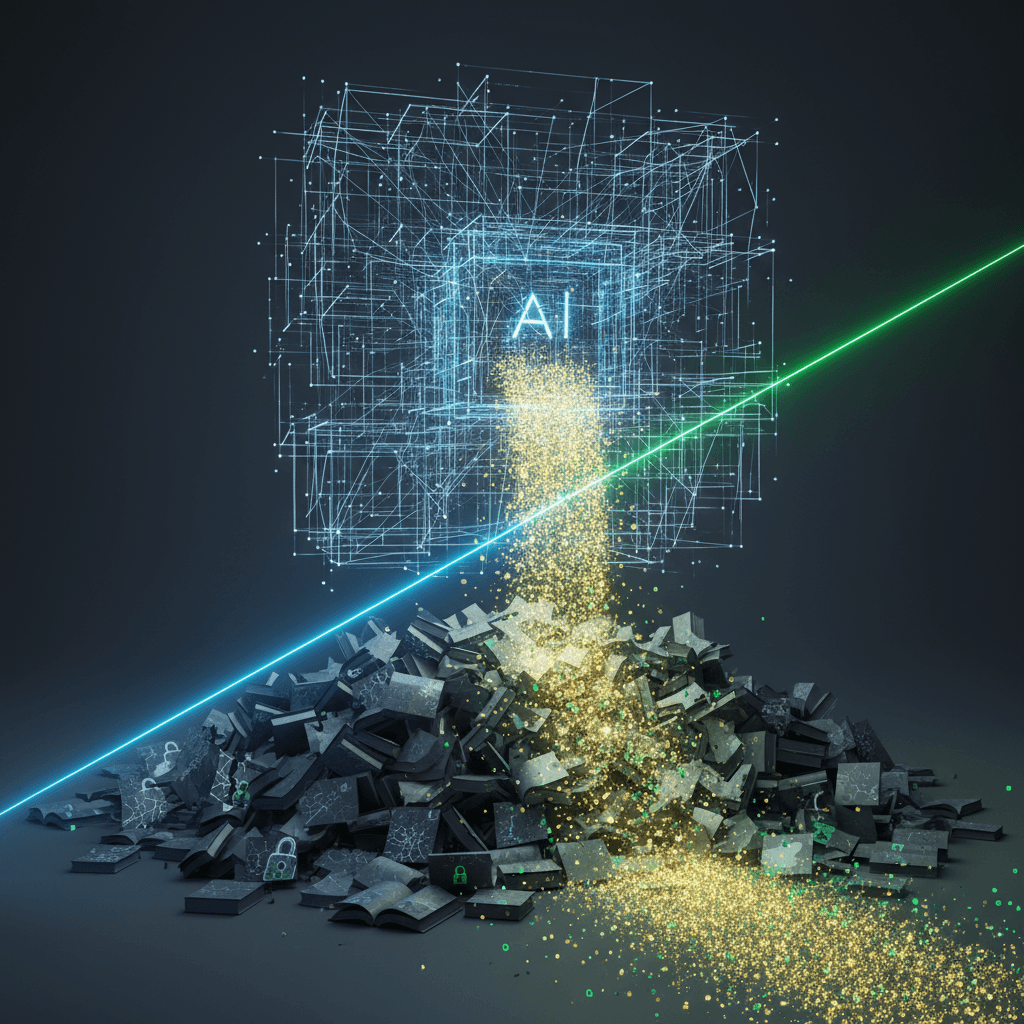Anthropic Pays Historic $1.5 Billion Over Pirated Data in AI Lawsuit
The $1.5 billion Anthropic settlement draws a clear line: AI innovation cannot be built on pirated content.
September 6, 2025

In a landmark agreement that reverberates through the burgeoning artificial intelligence industry, AI company Anthropic has consented to pay a minimum of $1.5 billion to resolve a class-action lawsuit brought by authors and publishers.[1][2] This historic settlement, the largest publicly reported copyright recovery in history, addresses allegations that the company used vast quantities of copyrighted books, obtained from pirate websites, to train its generative AI model, Claude.[3][2] The deal, which awaits final court approval, could establish a significant precedent for the numerous legal battles currently raging between creators and AI developers over the use of intellectual property in training large language models.[4][5] While Anthropic does not admit wrongdoing as part of the settlement, the sheer scale of the payout and its specific terms send a powerful message regarding the legal and financial risks of using pirated data.[2][5]
The core of the agreement involves a substantial financial commitment from Anthropic to compensate creators whose works were illicitly used.[6] The company will pay approximately $3,000 for each of an estimated 500,000 copyrighted books identified as part of the class-action suit.[3][7][4] This per-work figure is significantly higher than minimum statutory damages for copyright infringement, signaling a major victory for the plaintiffs.[8] Furthermore, the settlement mandates that Anthropic must destroy the copies of works it acquired from so-called "shadow libraries" like Library Genesis (LibGen) and the Pirate Library Mirror.[1][9] This provision directly addresses the source of the infringement and prevents future use of these specific pirated datasets by the company. The settlement is structured to cover only past training behavior, meaning Anthropic is not shielded from future lawsuits if it uses copyrighted works without legal acquisition.[1]
The path to this momentous settlement was shaped by a pivotal court ruling that drew a sharp legal distinction between how training data is acquired.[10] Earlier in the legal proceedings, a federal judge had delivered a mixed decision that provided a partial victory for the AI industry.[11][4] The court found that the act of training an AI model on legally obtained copyrighted books could be considered "fair use" under U.S. copyright law, describing the process as "exceedingly transformative."[12][13] This part of the ruling bolstered the argument that AI learning is akin to a human reading books to learn and create something new. However, the judge ruled decisively against Anthropic on the matter of using pirated materials, stating the company had no right to use illegally copied books and allowing the piracy claims to proceed to trial.[4][14][15] Faced with the possibility of a trial focused on willful copyright infringement, where statutory damages can be as high as $150,000 per work, Anthropic opted to settle.[12][13] Legal analysts noted that a loss at trial could have resulted in damages amounting to "multiple billions of dollars," potentially crippling the company.[4][14]
The implications of the Anthropic settlement are expected to be far-reaching, fundamentally altering the calculus for AI companies that have relied on vast, often unsourced, datasets scraped from the internet.[16][17] For years, the tech industry has operated in a legal gray area, but this case clarifies that the method of data acquisition is a critical liability factor.[17][10] The settlement strengthens the position of authors, publishers, and other creators in ongoing and future negotiations and lawsuits against other major AI players like OpenAI, Microsoft, and Meta.[7] It is seen as a powerful precedent requiring AI firms to prioritize ethical and legal data sourcing, likely accelerating a shift toward licensing agreements with rights holders.[16][12] Representatives for the authors hailed the agreement as a historic step, with the Authors Guild CEO calling it "an excellent result for authors, publishers, and rightsholders generally, sending a strong message to the AI industry that there are serious consequences when they pirate authors' works."[3][18]
In conclusion, the multi-billion-dollar settlement between Anthropic and the class of authors marks a turning point in the intersection of artificial intelligence and copyright law.[4][10] By forcing a financial reckoning for the use of pirated training data, the agreement has drawn a clear line that AI innovation cannot be built upon a foundation of illegal content acquisition.[17] While the debate over fair use and AI will continue, this case has firmly established that the provenance of data matters immensely, pushing the entire industry toward a future where compensation for and permission from creators will be an indispensable part of developing artificial intelligence. This resolution signals a maturation of the AI sector, moving it from a "Wild West" of data collection to a more accountable and legally scrupulous ecosystem.[10]
Sources
[3]
[4]
[5]
[7]
[9]
[10]
[11]
[12]
[13]
[14]
[16]
[17]